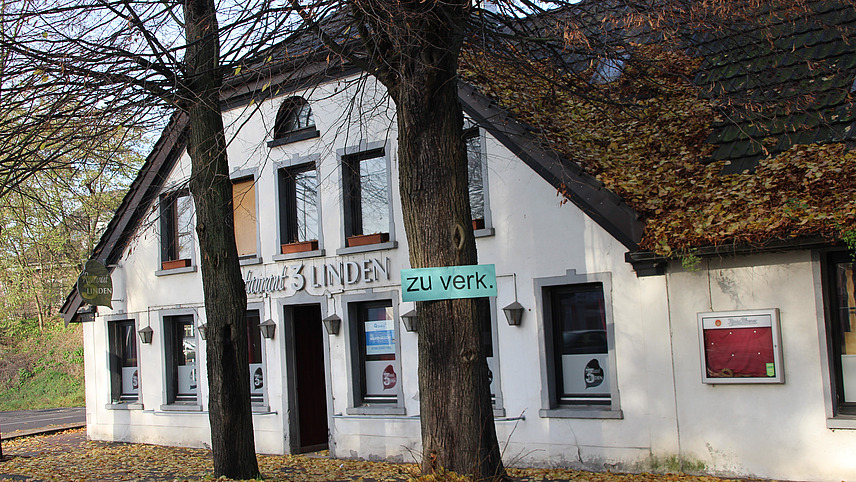Gastronomy in Transition
Project Description
For a long time, the restaurant sector in Germany received little attention in economic development, urban planning, city marketing, or spatial research. In geographical studies of commercial activity in city centers, the focus has traditionally been on retail, while changes in the gastronomy sector have often been viewed merely as side effects—or symbolic outcomes—of broader developments in rural or neighborhood contexts. Yet the evolution of the restaurant industry deserves more direct attention from urban planners, policymakers, and economic development professionals. Recognizing this gap, the working group human geography with a focus on economic geography began exploring the topic in 2018 across various research contexts. Our work examines key questions such as:
-
How do restaurants respond to crisis situations?
-
What are the causes and consequences of the decline of traditional pubs?
-
What role does the post-growth economy play in shaping the future of gastronomy and urban development?
Publications
Völlers, P., Franz, M., Verfürth, P. (2024). Gestärkt aus den Krisen: Bewältigungs- und Anpassungsmaßnahmen von Gastronomiebetrieben in Niedersachsen. Standort, online first. https://doi.org/10.1007/s00548-024-00954-6
Franz, M., Neise, T., Verfürth, P. (2023). Gastronomie zwischen Strukturwandel und COVID-19-Krise. Handlungsmöglichkeiten für Wirtschaftsförderung und Stadtmarketing. In: Korn, T.; Lempp, J.; van der Beek, G. (Hrsg.): Wirtschaftsförderung in der Krise. Konzepte zur Krisenbewältigung und Chancennutzung. Springer Gabler: Wiesbaden. doi.org/10.1007/978-3-658-41390-3_4
Verfürth, P., Neise, T., Franz, M., & Sohns, F. (2022): The uneven effects of COVID-19 on the German restaurant and bar industry. Erdkunde, 76 (2), 127-140. doi.org/10.3112/erdkunde.2022.02.05
Neise, T.; Verfürth, P. & Franz, M. (2021): Rapid responding to the COVID-19 crisis: Assessing the resilience in the German restaurant and bar industry. International Journal of Hospitality Management 96(1), 102960. doi.org/10.1016/j.ijhm.2021.102960
Franz, M., Müller, P., Neise, T. (2020). Krisenmodus – Die Auswirkungen der Corona-Pandemie auf die Gastronomie in Deutschland. Berichte des Arbeitskreises Geographische Handelsforschung Nr. 47, S. 11-12.
Neise, T., Müller, P., Franz, M. (2020). Wie bewältigen gastronomische Betriebe die Auswirkungen der CoVid-19-Pandemie? https://wp.med-geo.de/wp-content/uploads/2020/10/COVID19-Zaesur_Beitrag_Neise-et-al.pdf
Franz, M. (2020): Treffpunkt Gaststätte – warum sich Kommunen stärker um ihre Kneipen und Restaurants kümmern sollten. Standort– Zeitschrift für angewandte Geographie, 44(2), 93–98. doi.org/10.1007/s00548-020-00635-0
Franz, M. (2019). Gaststätten als Teil der lokalen Ökonomie. In: Henn, S. et al. (Hrsg.), Lokale Ökonomie – Konzepte, Quartierskontexte und Interventionen, S. 192-210. link.springer.com/content/pdf/10.1007/978-3-662-58363-0_14-1.pdf
Downloads and News
- Radio feature with Prof. Martin Franz on Antenne Niedersachsen (2024) "To the pubs...get set...go!"
- Video feature with Prof. Martin Franz on Norddeutscher Rundfunk (13.08.2024) "Why can't many village pubs survive?"
- Podcast Spaceconomics with Prof. Martin Franz (19.07.2024) "The geography of gastronomy"
- Video feature with Prof. Martin Franz on Süddeutscher Rundfunk (13.06.2024) "Village pubs are experiencing a renaissance"
- Article Wolfsburg+ (2024) "Gastronomy in transition. Do gastronomy and city centers support each other?"
- Article Neue Rhein/Neue Ruhr Zeitung (02.02.204) ""Schocken" and Stauder: rustic Essen pub goes down well"
- Article ntv (14.01.2024) "Bingo, bowling alley and jukeboxYoung people are drawn to the pub again"
- Newspaper article Marktspiegel (11.01.2024) "Young people are drawn to the pub. Are bingo and skittles experiencing a renaissance?"
- Fizzz magazine (2023), issue no. 3, p. 36-39: "Gastro & city center How are cities becoming more attractive again and what role do restaurants play in this? A stocktaking." (Paywall article)
- Radio report with Prof. Martin Franz WDR 5 (18.12.22) - "In the pub the light goes out - What chances do landlords still have?" (MP3, 62 MB)
- Newspaper article Münsterländische Volkszeitung (No. 253) from 29.10.2020: Study on restaurant sales (PDF, 266 kB)
- DEHOGA Magazine, September 2020: COVID-19 as a catalyst for structural change? (PDF, 125 kB)
- Contribution to the symposium of the Working Group for Medical Geography and Geographical Health Research (6.7. - 8.7.2020) - COVID-19 as a caesura?
- Institute news: Study at Osnabrück University shows effects of the corona pandemic on gastronomy in Germany
